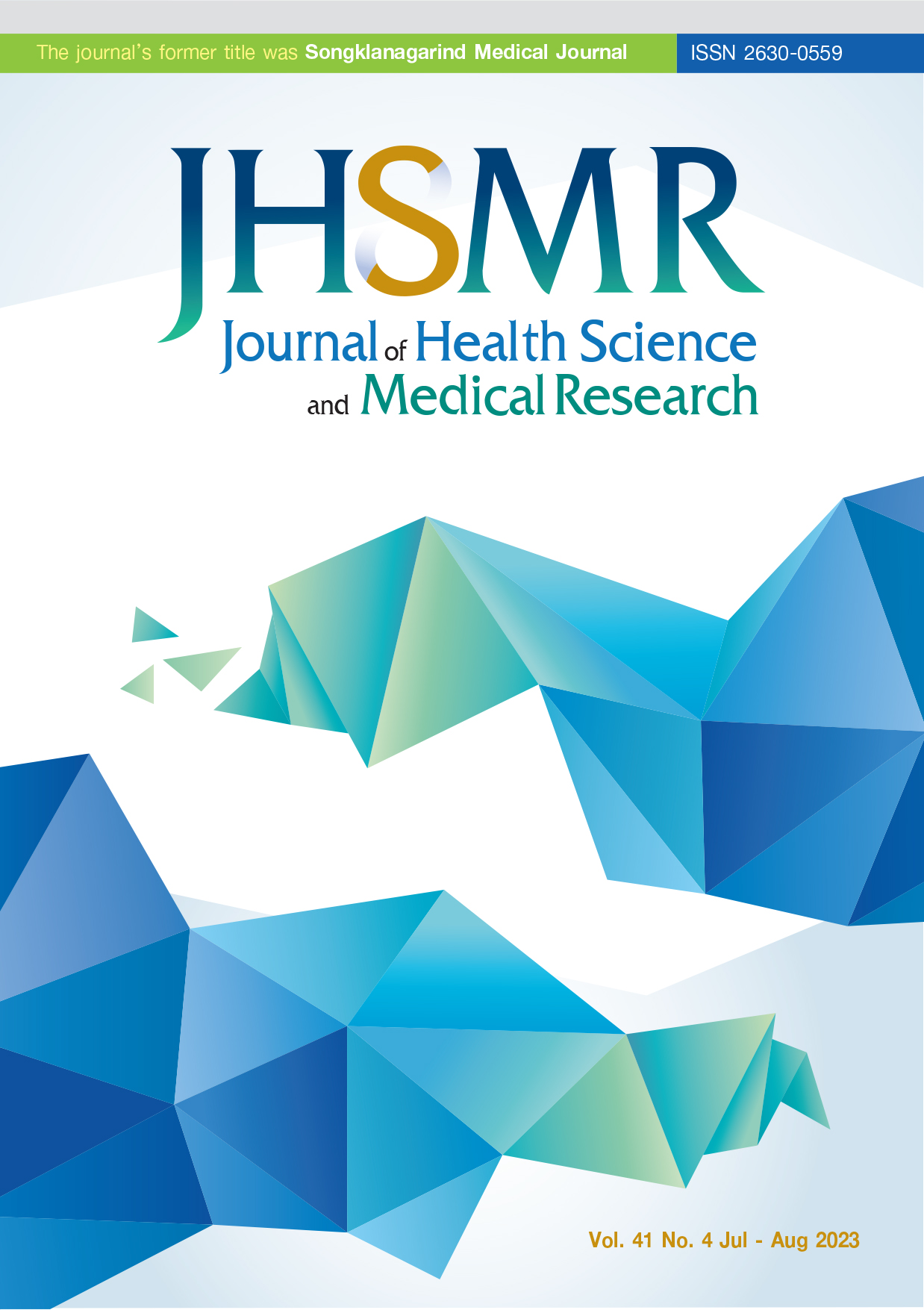Validity and Reliability of the Vietnamese Version of Diabetic Self-care Knowledge Questionnaire-30 Used for Assessing Self-care Knowledge of Patients with Type 2 Diabetes Mellitus in Vietnam
DOI:
https://doi.org/10.31584/jhsmr.2023943Keywords:
questionnaire, self-care knowledge, type 2 diabetes mellitusAbstract
Objectives: To translate and adapt the Diabetic Self-care Knowledge Questionnaire-30 (DSCKQ-30) questionnaire to be suitable for Vietnamese conditions and culture. To examine the reliability and validity of the Vietnamese version of the DSCKQ-30 questionnaire.
Material and Methods: The questionnaire was forward translated, from English into Vietnamese and vice versa, by four independent translators. After that, an expert panel resolved any disagreements in translation regarding 4 criteria: semantics, idioms, experiences and concepts. The questionnaire then underwent a pilot study, on a sample of 100 DM patients to assess its clarity and readability; from June 1, 2021, to June 15, 2021. Finally, a test-retest study was conducted on a sample of 279 patients, over one month to examine internal consistency, stability and construct validity of the questionnaire; from July 1, 2021 to July 30, 2021. This study was approved by the Research Ethics Committee of the Thai Nguyen National Hospital.
Results: The Vietnamese translated diabeté self-care knowledge questionnaire had content validity of 1.00, Cronbach’s alpha of 0.899 and Kappa coefficient of 0.700 or greater, except for question 15: with a Kappa coefficient of 0.658 (acceptable).
Conclusion: The translated, adapted version of the DSCKQ-30 is valid, reliable and a feasible tool for practice, education and research in the future.
References
Cho NH, Whiting D, Forouhi N, Guariguata L, Hambleton I, Li R, et al. Atlas. 7th ed. Brussels: D.J.I.D.A. International Diabetes Federation; 2015.
Bajaj S. RSSDI clinical practice recommendations for the management of type 2 diabetes mellitus 2017. Int J Diabetes Dev Ctries 2018;38(Suppl 1):1-115.
Carpenter R, DiChiacchio T, Barker K. Interventions for self-management of type 2 diabetes: an integrative review. Int J Nurs Sci 2019;6:70-91.
Sinclair KA, Makahi EK, Shea-Solatorio C, Yoshimura SR, Townsend CK, Kaholokula JK. Outcomes from a diabetes self-management intervention for Native Hawaiians and Pacific People: Partners in Care. Ann Behav Med 2013;45:24-32.
Choi EJ, Nam M, Kim SH, Park CG, Toobert DJ, Yoo JS, et al. Psychometric properties of a Korean version of the summary of diabetes self-care activities measure. Int J Nurs Stud 2011; 48:333-7.
Kueh YC, Morris T, Ismail AA. The effect of diabetes knowledge and attitudes on self-management and quality of life among people with type 2 diabetes. Psychol Health Med 2017;22:138- 44.
Kugbey N, Oppong Asante K, Adulai K. Illness perception, diabetes knowledge and self-care practices among type-2 diabetes patients: a cross-sectional study. BMC Res Notes 2017;10:381.
Van der Heide I, Uiters E, Rademakers J, Struijs JN, Schuit AJ, Baan CA. Associations among health literacy, diabetes knowledge, and self-management behavior in adults with diabetes: results of a dutch cross-sectional study. J Health Commun 2014;19(Suppl 2):115-31.
Bains SS, Egede LE. Associations between health literacy, diabetes knowledge, self-care behaviors, and glycemic control in a low income population with type 2 diabetes. Diabetes Technol Ther 2011;13:335-41.
Fransen MP, von Wagner C, Essink-Bot ML. Diabetes self-management in patients with low health literacy: ordering findings from literature in a health literacy framework. Patient Educ Coun 2012;88:44-53.
Adibe MO, Aguwa CN, Ukwe CV. The construct validity of an instrument for measuring type 2 diabetes self-care knowledge in Nigeria. Trop J Pharm Res 2011;10:619-29.
Hilton A, Skrutkowski M. Translating instruments into other languages: development and testing processes. Cancer Nurs 2002;25:1-7.
Willgerodt MA, Kataoka-Yahiro M, Kim E, Ceria C. Issues of instrument translation in research on Asian immigrant populations. J Prof Nurs 2005;21:231-9.
Beaton D, Bombardier C, Guillemin F, Ferraz M. Recommen dations for the cross-cultural adaptation of the DASH & Quick DASH outcome measures. Toronto: Institute for Work & Health; 2007.
Kline P. The Handbook of psychological testing. London: Routledge; 2013.
Bowling A. Research methods in health: investigating health and health services. Maidenhead: McGraw-Hill Educaton; 2014.
Robinson JP, Shaver PR, Wrightsman LS, Andrews FM. Measures of personality and social psychological attitudes. San Diego: Academic Press; 1991.
Zerihun Sahile L, Benayew Shifraew M, Zerihun Sahile M. Diabetic self-care knowledge and associated factors among adult diabetes mellitus patients on follow-up care at North Shewa Zone Government Hospitals, Oromia Region, Ethiopia, 2020. Diabetes Metab Syndr Obes 2021;14:2111-9.
Robson C, McCartan K. Real world research. A resource for users of social research methods in applied settings. London: John Wiley and Son; 2016.
Bryman A. Social research methods. New York: Oxford University; 2008.
Downloads
Published
How to Cite
Issue
Section
License

This work is licensed under a Creative Commons Attribution-NonCommercial-NoDerivatives 4.0 International License.
























